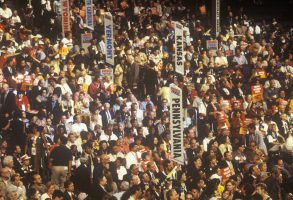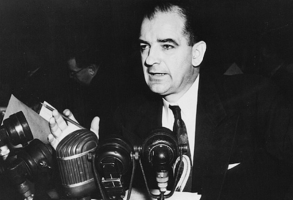Lance Morrow
Henry Grunwald Senior Fellow
Lance Morrow is the Henry Grunwald Senior Fellow at the Ethics and Public Policy Center. His work focuses on the moral and ethical dimensions of public events, including developments in regard to freedom of speech, freedom of thought, and political correctness on American campuses, with a view to the future consequences of such suppressions.
Lance Morrow is the Henry Grunwald Senior Fellow at the Ethics and Public Policy Center. His work focuses on the moral and ethical dimensions of public events, including developments in regard to freedom of speech, freedom of thought, and political correctness on American campuses, with a view to the future consequences of such suppressions.
Morrow’s award-winning essays, appearing in Time, Smithsonian, The New York Times, The Atlantic, and other publications, have offered probing analyses of American culture and politics in the transition from the 20th to the 21st century.
Morrow wrote about every presidential election from Nixon to Obama, wars from Vietnam to Bosnia to the Middle East. Morrow was the author of more than 150 cover stories for Time, including eight Man of the Year articles.
He is currently writing a book about Henry Luce and his magazines’ role in shaping American culture and opinions in the middle third of the 20th century. Morrow is a strong believer in the role of journalism in sustaining freedom and democracy.
The son of an editor of the old Saturday Evening Post and of a Washington columnist for the Knight syndicate, Morrow grew up in Washington. He attended Gonzaga High School, and graduated magna cum laude from Harvard University. For nine years (1996-2005), he was a University Professor at Boston University, where he taught presidential history and the art of the essay.
The author of seven books, Morrow is a two-time winner of the National Magazine Award—the first for his original coverage in essay form of American cultural affairs, the second for his essay that was part of Time‘s special coverage of September 11th.
Morrow’s study of the question of evil, arising among other things from his travel in the Bosnian war zone with Elie Wiesel, was a finalist for the National Magazine Award. Later, he turned the article into a critically acclaimed book—Evil: An Investigation.
Seeing Red and Feeling Blue: America’s Rotten National Mood
Lance Morrow

Injury can bring a country together. But this is a compound fracture to the national psyche.
Articles
The Wall Street Journal / February 19, 2021
Free the Mind from Bitterness
Lance Morrow
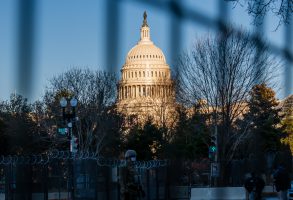
Americans have become dangerous to themselves. This must be transcended.
Articles
City Journal / January 20, 2021
Infamy and Mythology
Lance Morrow
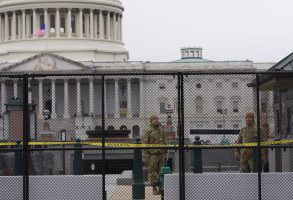
For Donald Trump, yesterday’s events may prove to be as much one as the other.
Articles
City Journal / January 8, 2021
Christmas in a Dark Time
Lance Morrow

Christmas should speak of the power of love, of forgiveness—a truce, a tenderness. There’s not much of that right now in the noisy, nasty public square.
Articles
City Journal / December 24, 2020
An Unfunny Thing Happened on the Way to 2021
Lance Morrow

Polarization, political correctness and Covid-19 have produced a hostile environment for humor.
Articles
The Wall Street Journal / December 1, 2020
Elite Opinion Is Never Wrong
Lance Morrow

Reality may fail to measure up to cocktail party assumptions, but the chit-chat of the better people rings on, unchanged.
Articles
City Journal / November 13, 2020
Trump’s White House at the End of the Line
Lance Morrow

Not even in the bitterest, most furious days of the late ’60s were Americans as alienated from one another as they are now.
Articles
The Wall Street Journal / November 12, 2020
A Noisy Place
Lance Morrow

Our exhausting and not-yet-settled election of 2020 should remind us that America has rarely been “one nation, indivisible.”
Articles
City Journal / November 4, 2020
FDR, Coronavirus and the Politics of Bravado
Lance Morrow
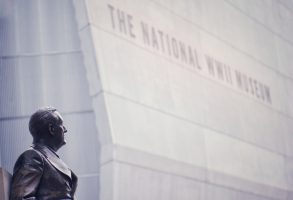
When Mr. Trump tells his fellow citizens not to be intimidated by the coronavirus, not to let it “dominate” them, he does a perfectly Trumpian thing: He invites them to share in an optative, mind-over-matter metaphysics that is the key to his relationship to the truth and the workings of his presidency.
Articles
The Wall Street Journal / October 9, 2020
Before Reporting Became ‘Journalism’
Lance Morrow
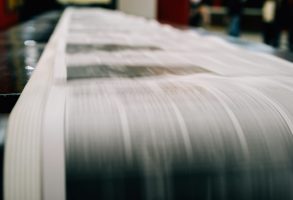
It would be silly to idealize the old journalism, which had its problems, including excessive deference to authority and massive sins of omission in the scope of its curiosity; anyway, it belonged to a different world. But it had this virtue: The work, subduing the ego of the reporter, implied respect for the independent mind of the reader.
Articles
The Wall Street Journal / September 23, 2020
